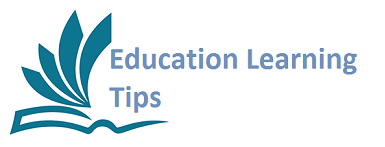Effective note-taking is a crucial skill for academic success, especially when preparing for exams. It’s not just about jotting down what you hear or read; it’s about organizing information in a way that enhances understanding and retention. This article explores various note-taking strategies that can help you retain information more effectively and make your revision process more efficient.
Understanding the Importance of Note-Taking
Note-taking is more than a mere transcription of information, such as the simple transition from Word to PDF; it’s an active part of the learning process. Good notes can help you understand complex concepts, remember key information, and provide a valuable resource for review.
Benefits of Effective Note-Taking
By taking notes, you’re forced to process information and summarize it in your own words, which enhances understanding. Also, the act of writing information down helps to embed it in your memory. Well-organized notes make revising for exams more efficient, as they highlight the most important information.
Strategies for Effective Note-Taking
Different strategies work for different people, depending on your learning style and the nature of the material you’re studying.
The Cornell Method
The Cornell Method involves dividing your paper into three sections: a narrow column on the left for keywords or questions, a larger right-hand column for notes, and a summary at the bottom. This method encourages you to think critically about your notes by summarizing the main ideas in your own words.
Mind Mapping
Mind mapping is a visual note-taking strategy that involves writing a central idea in the middle of the page and branching out with related ideas, terms, and concepts. This method is particularly effective for visual learners and for subjects that involve complex relationships between topics.
The Outline Method
The Outline Method involves organizing notes in a structured format, using headings and subheadings. This method is ideal for linear thinkers and for subjects with a lot of detailed content.
Charting Method
The Charting Method uses columns and rows to organize information, which is particularly useful for classes that involve a lot of data or comparisons.
Tips for Effective Note-Taking
Regardless of the method you choose, there are several tips that can enhance the effectiveness of your notes.
Be Selective
You don’t need to write down everything. Focus on key concepts, important facts, and connections between ideas.
Use Your Own Words
Paraphrasing information in your own words helps you process and understand it better.
Develop a Consistent System
Use abbreviations, symbols, and a consistent format to make your notes easier to understand and review.
Review and Revise Your Notes
Regularly reviewing and revising your notes is crucial for reinforcing your understanding and memory of the material.
Incorporating Technology in Note-Taking
Technology offers additional tools and platforms for note-taking, which can be particularly useful for organizing and storing notes.
Digital Note-Taking Tools
Apps like Evernote, OneNote, and Google Keep allow you to take and organize notes digitally. They offer the advantage of easy editing, organization, and accessibility across devices.
Recording Lectures
Recording lectures (with permission) can be helpful. You can listen to the recording later to fill in any gaps in your notes.
Using Tablets and Styluses
Tablets and styluses can offer the best of both worlds – the flexibility of writing by hand and the convenience of digital organization.
Note-Taking for Different Types of Exams
Your note-taking strategy may vary depending on the type of exam you’re preparing for.
Essay Exams
For essay exams, focus on summarizing concepts and arguments, and note down examples and evidence that you can use in your essays.
Multiple-Choice Exams
For multiple-choice exams, concentrate on facts, definitions, and details, as well as the application of concepts.
Problem-Solving Exams
For exams that involve problem-solving, practice by writing out key formulas and processes, and work through example problems.
Conclusion
Mastering the art of note-taking is a valuable skill that will serve you well throughout your academic career and beyond. By selecting a note-taking strategy that works for you, being selective and organized in your approach, and regularly reviewing your notes, you can significantly improve your ability to retain information and perform well in exams. Remember, effective note-taking is a skill that improves with practice, so keep refining your approach until you find what works best for you.

